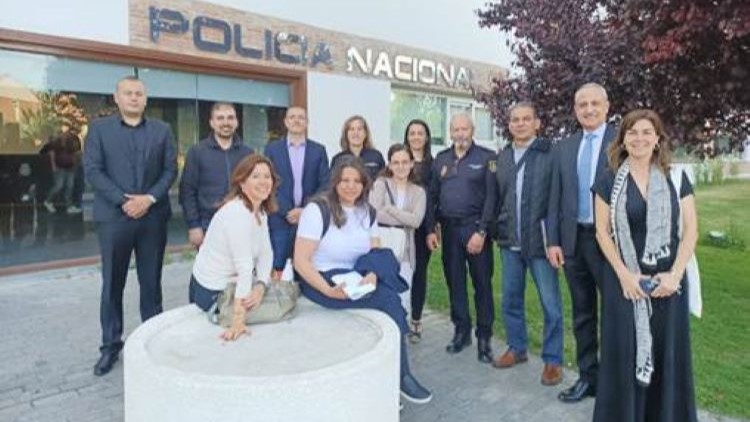The Diplomat
A delegation of Lebanese institutions visited Spain last week to learn first-hand about the work being done in our country to guarantee human rights for persons deprived of their liberty.
The visit was organized by the Fundación Internacional y para Iberoamérica de Administración y Políticas Públicas (FIIAPP), a public entity linked to the Spanish Cooperation, together with the National Police between the 25th and 28th of April and is part of the European project Support to community policing in Lebanon, which aims to promote community policing respectful of human rights and the rule of law in the country.
During these days, the eight members of the Lebanese delegation (comprising four representatives of the Internal Security Forces, the director of the prisons department of the Ministry of Justice and three civil society organizations) were able to learn first-hand about the work of the Inspectorate of Personnel and Security Services (IPSS) of the Ministry of the Interior, the National Office for the Guarantee of Human Rights (ONGADH) of the General Directorate for Coordination and Studies (DGCE), the Ombudsman, the Spanish Mechanism for the Prevention of Torture, the Alcalá de Henares police station – where the National and Municipal Police coexist – and the Madrid VII penitentiary center.
The visit concluded with a round table to exchange best practices among professionals from public entities involved in the promotion of human rights and the prevention of torture. Thanks to this meeting, representatives of the Lebanese security forces, judicial institutions and civil society were able to learn first-hand about the experience of their counterparts in Spain.
Situation in Lebanon
More than 8,000 people are currently deprived of their liberty in the country’s 25 official prisons, where they are suffering the consequences of the crisis and the paralysis that is sweeping the country. Less than 15% of these people are serving sentences and the rest (8.5 out of 10) are awaiting trial. Many of the penitentiary facilities are overcrowded and lack resources. In addition, there has also been an increase in prison crime due to rising poverty.
Therefore, the objective of the visit was to contribute to improving the technical and coordination capacity of Lebanese organizations and institutions involved in prison reform, with a special focus on the prevention of torture and the promotion of human rights. In addition, the visit provided an opportunity to learn about the community policing model currently being implemented in Spain through the national police’s citizen participation program.







